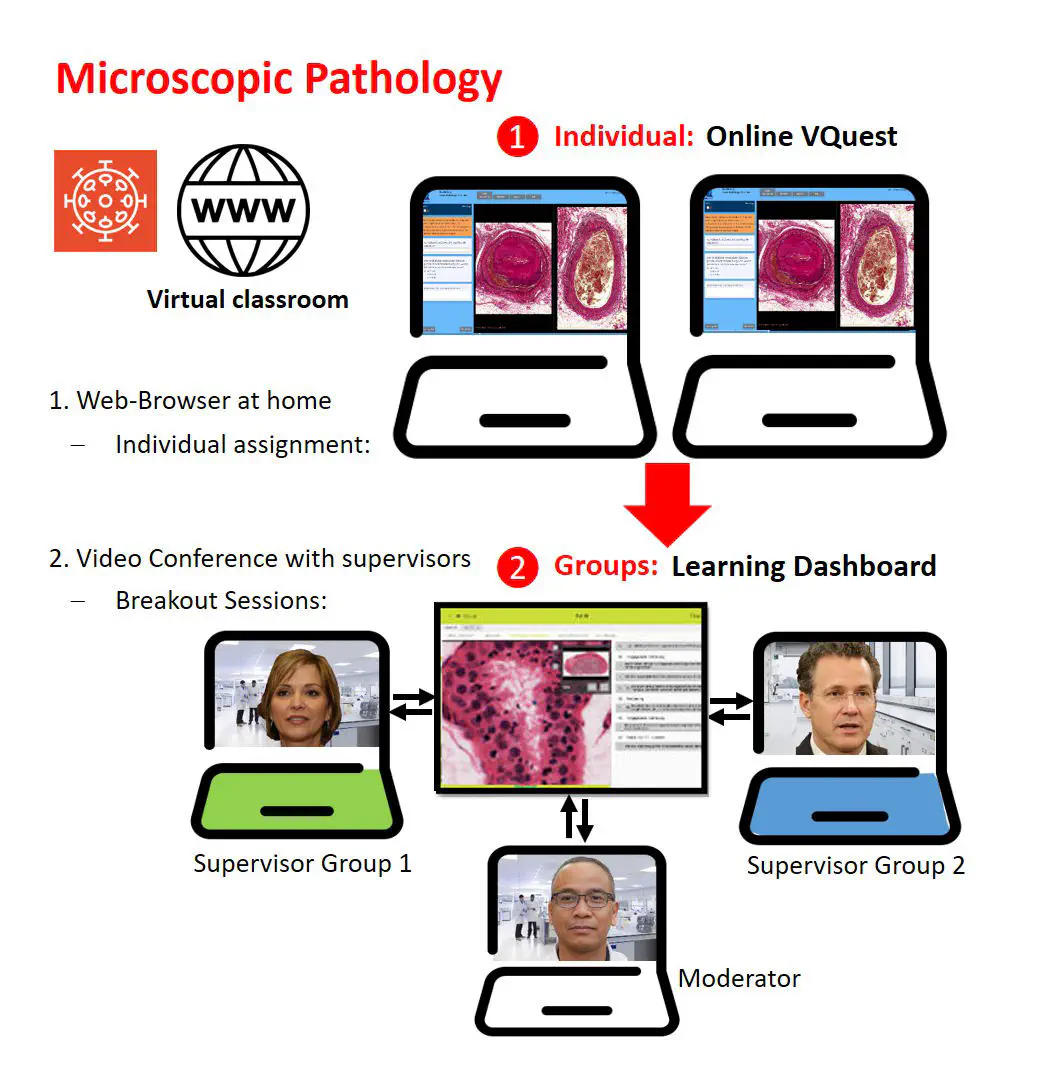Projekte Blended Learning

Collaborative Learning of Viewing and Decisionmaking Skills
Project duration: Two years, from 2021-03-01 to 2023-02-28
Erasmus+ project card: #2020-1-DE01-KA226-HE-005813
Summary
In the current COVID-19 pandemic we see that previously established competency-based learning scenarios with sufficient active and collaborative learning are at risk. This is particularly frustrating for the hard-hit healthcare sector, because now more than ever workplaces are desperate to attract an adequate intake of competent young professionals, and teaching staff, who were already scarce, are often fully occupied with patient care.
For teaching and learning viewing skills, high quality digital tools for a) assessment with 2D/3D images and b) capturing and visualizing the outcomes of learning activities (learning dashboards) are lacking. Such tools would support teachers in teaching visual competencies and enable learners to share a knowledge base, a joint focus and a joint means of communication.
For microscopic pathology as an example of a discipline that is highly dependent on visual imaging technologies the availability of a package of high quality digital tools, training material for medical teachers to acquire digital pedagogical competencies and a good practice example of a online flipped classroom scenario for teaching medical students visual competencies with whole slide images (WSI), could make a valuable contribution to promoting excellence in teaching in higher education.
Objective of the cLovid (collaborative Learning of viewing and decisionmaking skills)-project is to provide:
- the technical conditions necessary to adapt flipped classroom scenarios with active and collaborative activities for microscopic pathology to contextual factors such as enforced social distancing (COVID-19 pandemic), limited campus facilities or the wish to offer distance learning to overcome difficulties with access to education imposed by geographical distance.
- teaching material for training medical teachers in digital pedagogical competencies; (a) for flipped classroom courses with active and social activities in general; and (b) for supervising online scenarios for microscopic pathology teaching with task-based and collaborative learning activities in particular.
- evaluations and research on pilot implementations of a methodological framework with a good-practice example of a flipped classroom course on microscopic pathology for undergraduate medical students. Here, both individual tasks and collaborative learning activities are fully online and supported by high quality digital content and tools
A strategic partnership of
- the E-Learning Competence Center of the Institute of Medical Education and Student Affairs (IfAS) of the University of Muenster, Germany;
- the Image Sciences Institute (ISI) of the Imaging & Oncology Division of University Medical Center Utrecht (UMCU), the Netherlands and
- the Centre for Research on Learning and Instruction (CerLI) of Faculty of Education of University of Turku, Finland
will bring together their specific IT, educational technology and pathology-specific teaching expertise to achieve the best need-payoff possible and maximise the opportunities to disseminate its outcome throughout the European higher education sector.
Schematic overview

